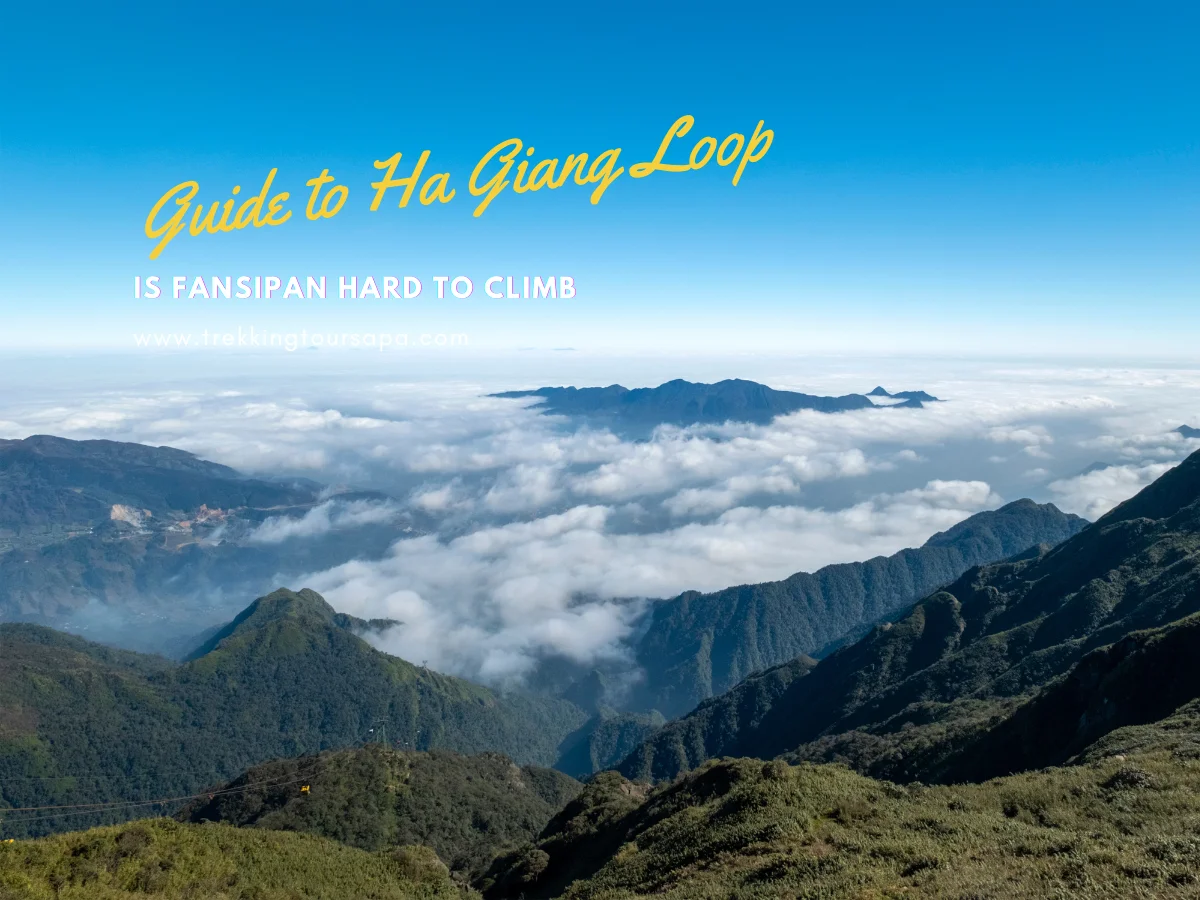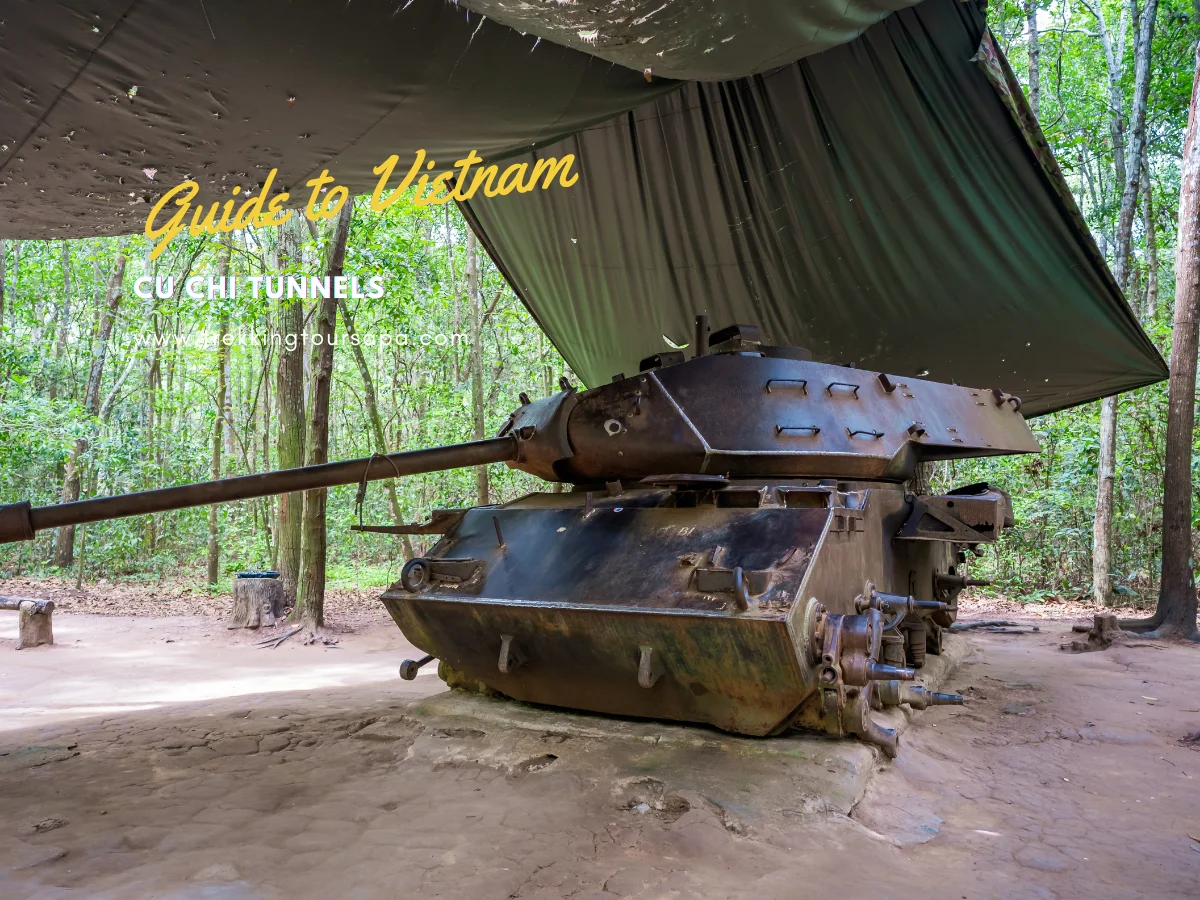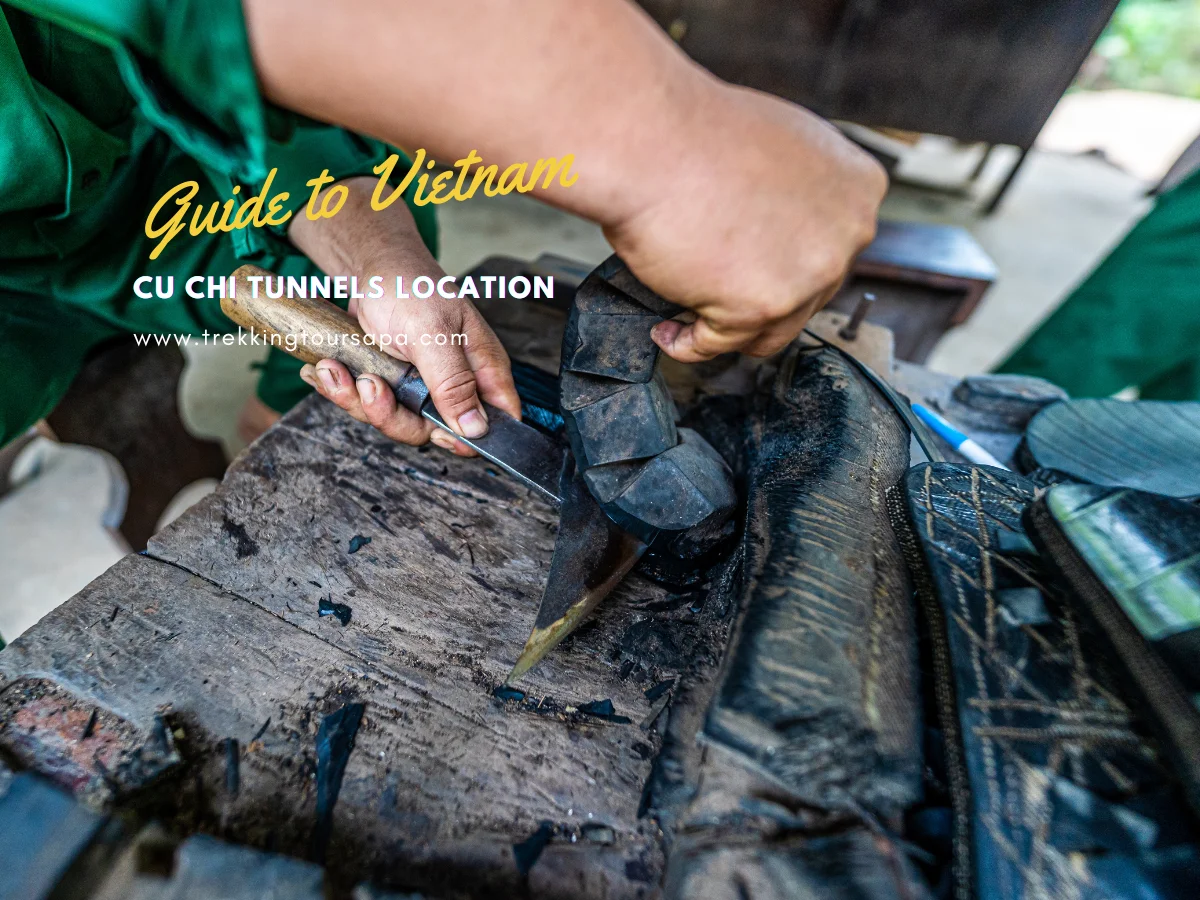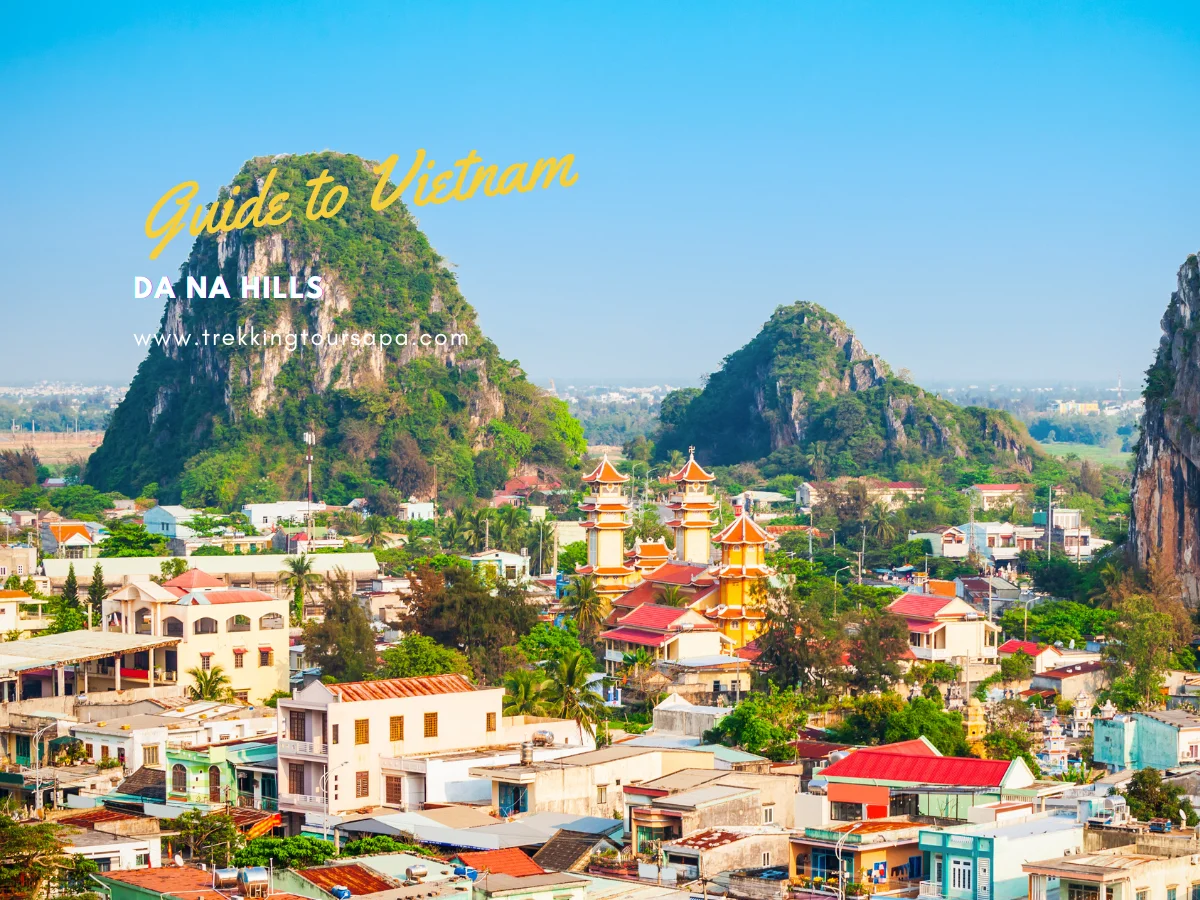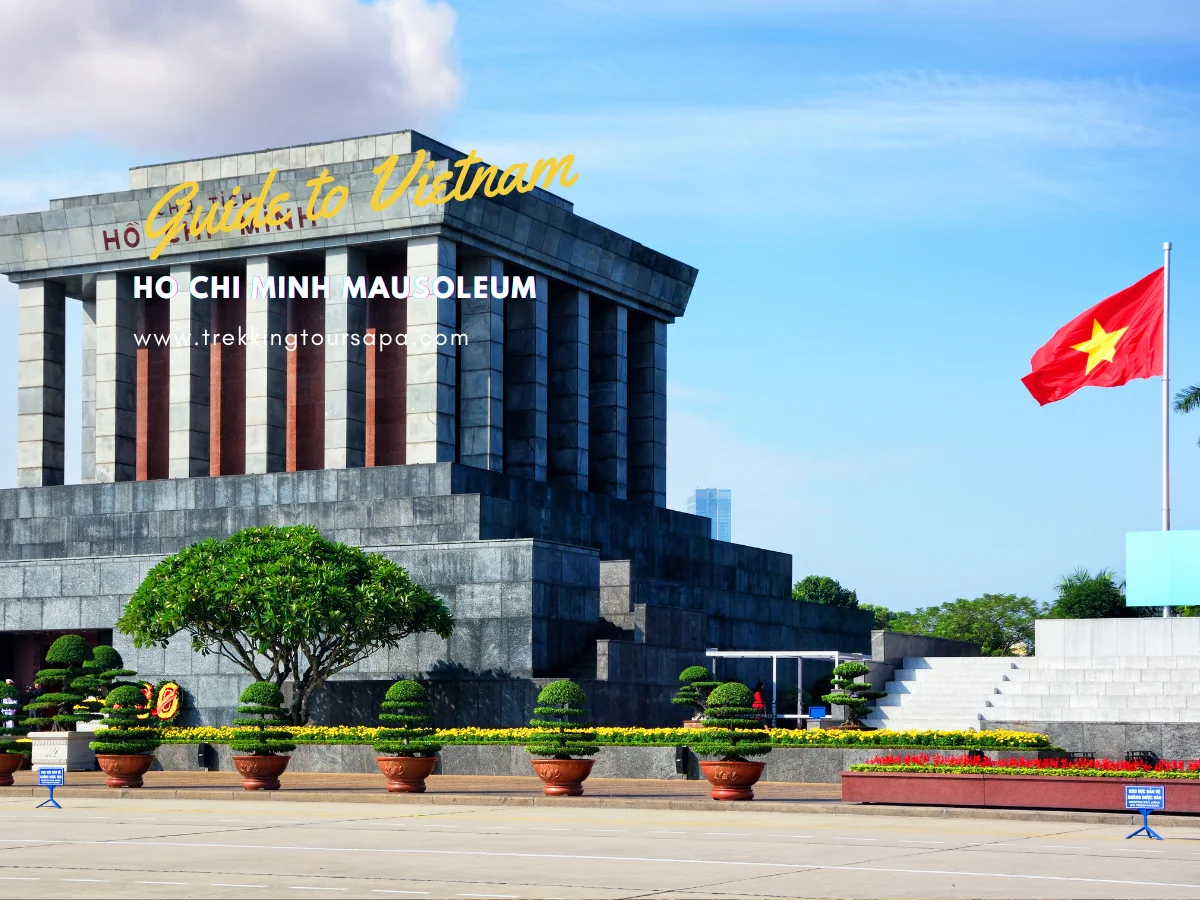On the quest to unveil the secrets of Indochina’s tallest peak, we often hear whispers questioning, “Is Fansipan hard to climb?” This behemoth, which stretches toward the heavens at 3,143 meters (10,312 feet), beckons adventurers with its siren call. But does the difficulty of climbing Fansipan match the myths spun around it? Imagine standing atop Vietnam’s majestic landscape, surveying the cloud-piercing range from where earth meets sky. For many, the Fansipan trekking challenge is a rite of passage, a testament to the human spirit’s yearning for elevation. Today, let’s shatter the veil of intimidation and show you that stepping onto the Roof of Indochina may not be the herculean effort it’s reputed to be.
Key Takeaways
- Understanding the real difficulty of climbing Fansipan can empower even novice trekkers to attempt the ascent.
- Fansipan is accessible, even without specialized equipment or advanced mountaineering experience.
- The durations and physical demands of the trek can vary, with weather playing a significant role.
- Discover how the newly installed cable car has made the summit more attainable for everyone.
- Learn why the Fansipan trekking challenge is as much about mental perseverance as physical endurance.
- Gain tips on how to climb responsibly, taking into account the mountain’s dynamic environment.
Table of Contents
ToggleWelcome to the Roof of Indochina
Embarking on the journey of conquering Fansipan peak is an adventure that many trekkers dream of. As the highest mountain in Indochina, located in Vietnam’s majestic Hoang Lien Son Range near Sapa, Fansipan presents a thrilling challenge akin to reaching the summit of the southeastern edges of the Himalayas. With this challenge comes the need for solid Fansipan mountain climbing tips to prepare for the rapidly changing conditions of this mighty peak.
While many have set their sights on the summit, it goes without saying that Fansipan’s climb requires preparation well beyond the physical strain. The mists that dance along the highlands have a reputation for cloaking the paths, adding mystery but also an extra layer of challenge. Our guidance here is geared to equip you with essential knowledge, ensuring your climb is both enjoyable and safe.
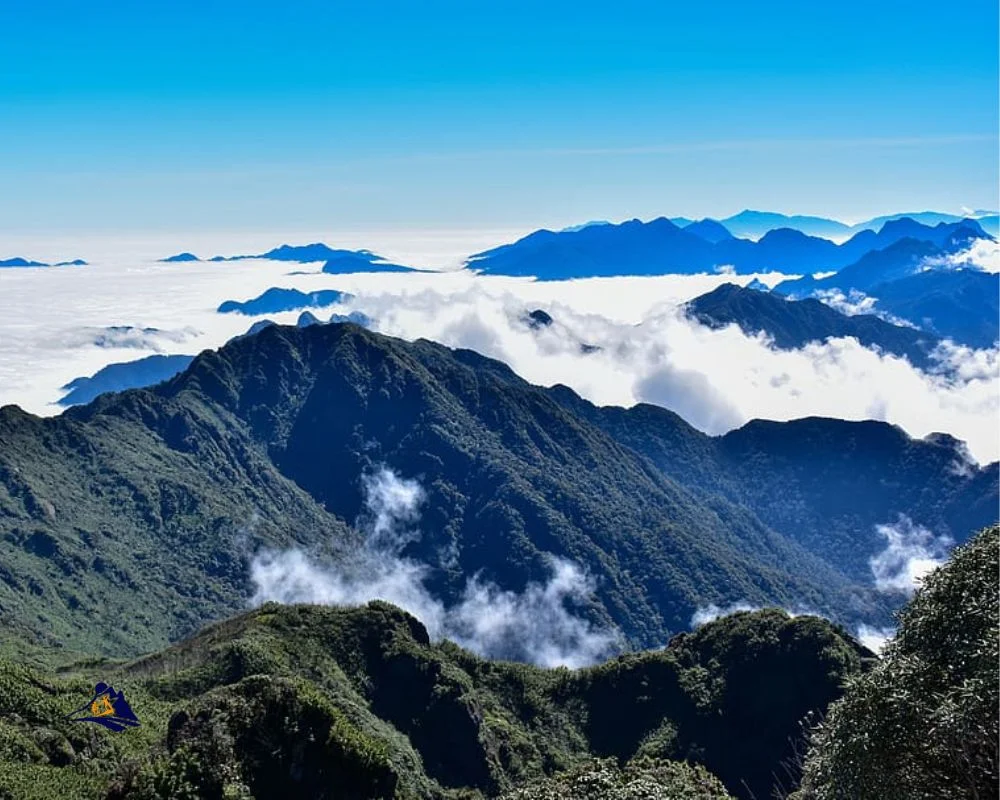
Here’s what every adventurer should keep in mind:
- Research local weather patterns before your climb. Being caught off-guard by a sudden change can be dangerous.
- Acquaint yourself with the common routes and their respective challenges. Some paths might suit your experience level better than others.
- Consider your overall health and fitness. The physical demand of climbing the highest peak in Indochina is not to be underestimated.
In our continuing journey, we’ll explore more about what it takes to ascend this magnificent peak responsibly and safely, examining the gear to gear up with, the training to undertake, and the foresight to have before putting boots to the mountain trail. But before we get into the details, let’s lay out some essential pointers in a table for a snapshot view:
| Consideration | Detail | Importance |
|---|---|---|
| Weather Awareness | Familiarity with the seasonal climate of the Hoang Lien range | Essential for timing your climb and packing appropriately |
| Route Knowledge | Understanding the difficulty and scenic value of various approaches | Crucial for aligning the climbing experience with your expectations |
| Physical Conditioning | Gauging and preparing your body’s endurance and strength for the ascent | Prevents exhaustion and altitude sickness, ensuring a safer climb |
Armed with this table as your cheat sheet, you’re better prepared to make the most of this opportunity to stand atop the Roof of Indochina. So, lace up those boots, and let’s prepare to make your journey to Fansipan a victorious and memorable one.
Sapa 1 Day Tours
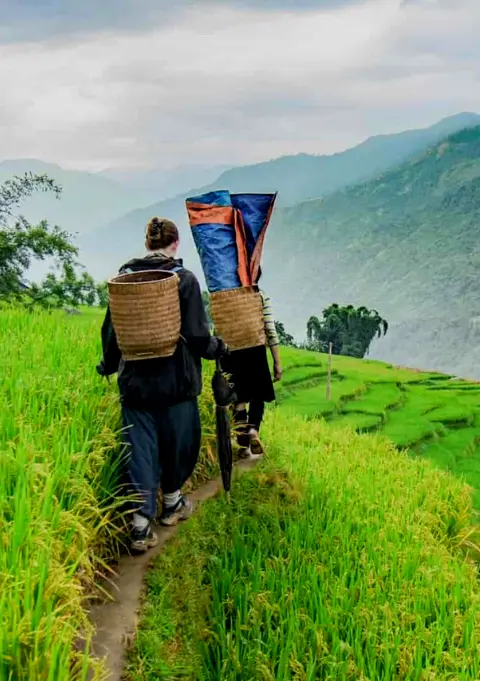
- 1 day experience
- Moderate to challenging
- Cultural immersion & active adventure
- Rice fields, valleys & villages
- Private tours
- Vegan-friendly
Sapa 2 Day Tours
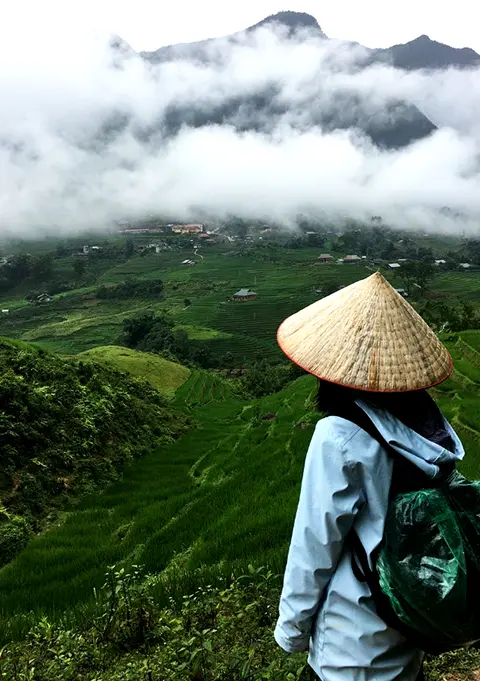
- 2 days 1 night experience
- Moderate to challenging
- Cultural immersion & active adventure
- Mountains, valleys, rice fields and villages
- Private tours
- Vegan-friendly
Sapa 3 Day Tours
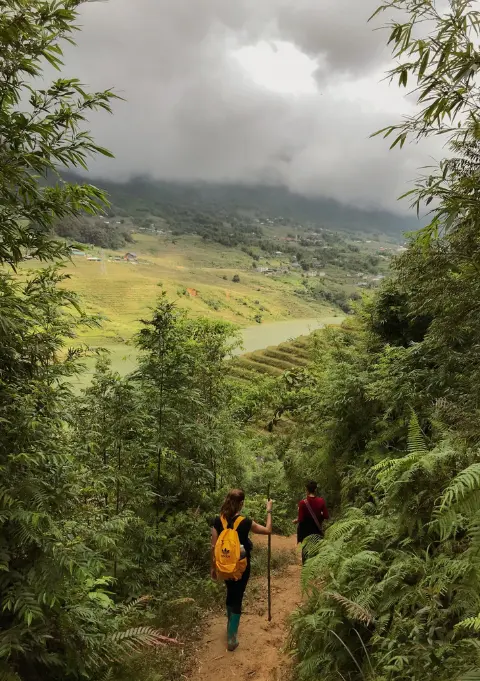
- 3 days 2 night experience
- Moderate to challenging
- Cultural immersion & active adventure
- Mountains, valley, rice fields & villages
- Private tours
- Vegan-friendly
Sapa 4 Day Tours
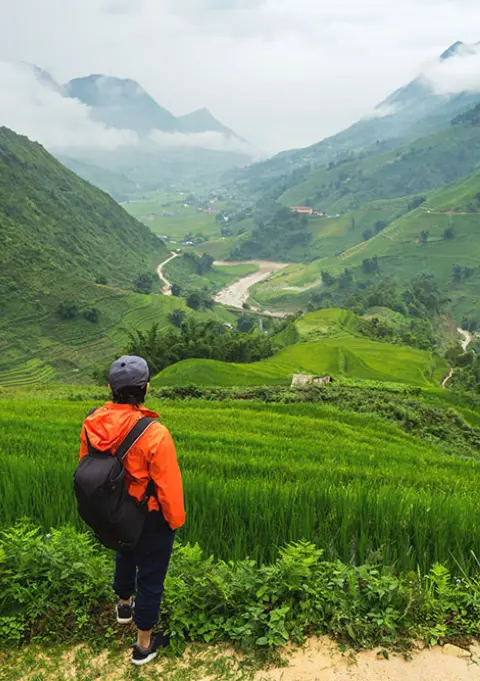
- 4 days 3 night experience
- Moderate to challenging
- Cultural immersion & active adventure
- Mountains, valleys, rice fields & villages
- Private tours – Less Touristic
- Vegan-friendly
Understanding Fansipan’s Peak Terrain
As we embark on the journey to conquer Fansipan, the legendary roof of Indochina, it’s essential to grasp the intricacies of its peak terrain. The route toward the summit offers a mosaic of natural challenges, each influencing the Fansipan climb difficulty in unique ways. With our meticulous Fansipan trekking guide, we’ll ensure you’re informed and prepared for what awaits.
The Trail’s Elevation and Its Impact on Difficulty
Fansipan’s peak is not just another hill walk—it’s a steep climb to an elevation gain of over 2,000 meters starting from the Tram Ton Pass trail. The air thins as we ascend, making every step more strenuous than the last. This significant change in altitude is a key factor contributing to the trek’s difficulty level, requiring both mental and physical preparedness.
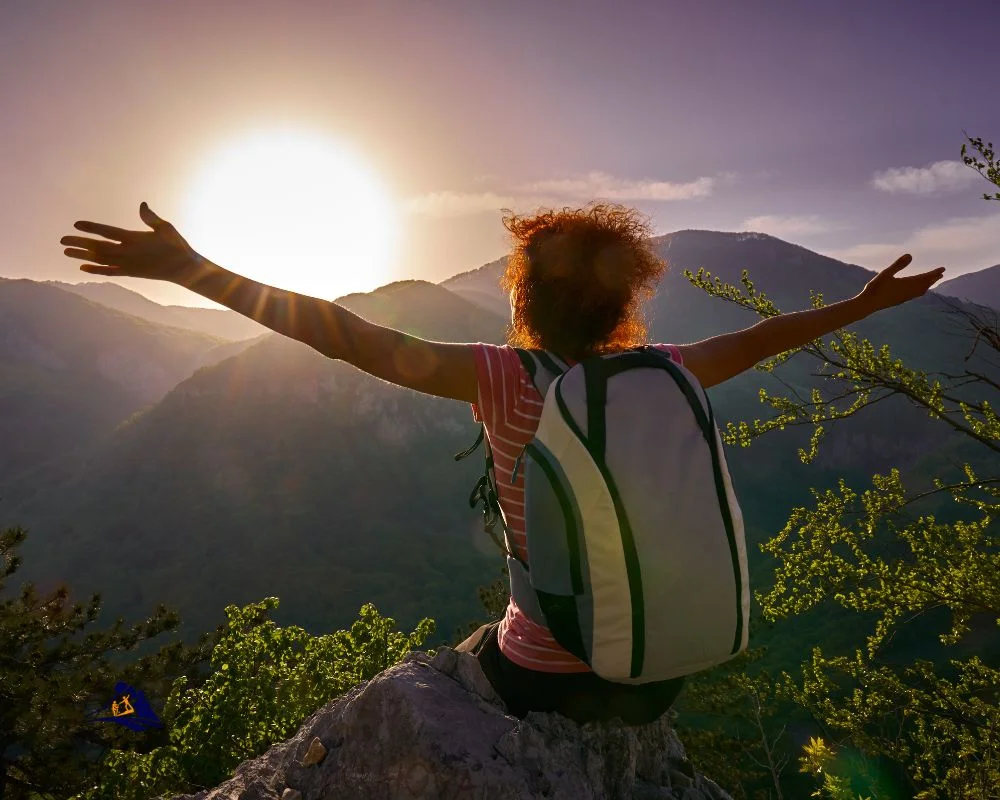
Terrain Variability: From Jungle Paths to Mountainous Inclines
The Fansipan peak terrain is a sequence of environmental transitions. One moment, we’re navigating dense jungle paths, surrounded by the lush greenery of the Hoang Lien Son Range. The next, we’re facing mountainous inclines, with rocky sections where only metal and peg ladders aid our climb. This terrain variability is yet another reason why the ascent demands respect, calling for skill and cautious footwork.
Understanding Fansipan’s peak terrain is crucial not only for safety but also for the joy of the experience. To fully enjoy and conquer this majestic mountain, take heed of our Fansipan trekking guide, and prepare for an adventure that will test your limits and reward your spirit.
Sapa 1 Day Tours

- 1 day experience
- Moderate to challenging
- Cultural immersion & active adventure
- Rice fields, valleys & villages
- Private tours
- Vegan-friendly
Sapa 2 Day Tours

- 2 days 1 night experience
- Moderate to challenging
- Cultural immersion & active adventure
- Mountains, valleys, rice fields and villages
- Private tours
- Vegan-friendly
Sapa 3 Day Tours

- 3 days 2 night experience
- Moderate to challenging
- Cultural immersion & active adventure
- Mountains, valley, rice fields & villages
- Private tours
- Vegan-friendly
Sapa 4 Day Tours

- 4 days 3 night experience
- Moderate to challenging
- Cultural immersion & active adventure
- Mountains, valleys, rice fields & villages
- Private tours – Less Touristic
- Vegan-friendly
Is Fansipan Hard to Climb? Demystifying the Trek
Many adventurous souls often ask us, is Fansipan hard to climb? The simple answer is that Fansipan does present a significant Fansipan trekking challenge, with its sweeping elevation and the unpredictable weather that can throw a curveball at even the most seasoned trekkers. Nevertheless, the trail to the summit is well-marked and has been successfully traversed by many who are in good physical health.
We’ve noticed that acclimatizing to the altitude can be one of the critical factors when tackling the Fansipan summit difficulty. The climb to over 3,000 meters (nearly 10,000 feet) imposes a strain on the body that shouldn’t be underestimated, and some individuals prefer to mitigate this by spending a night at a camp along the way. This isn’t just for rest—it’s a strategic decision to help the body adjust to the higher altitude and decreased oxygen levels.
- High elevation challenge
- Unpredictable weather conditions
- Challenging terrain with rocky paths
- Well-marked but physically demanding trails
- Option to camp for altitude acclimatization
So, while the concept of conquering Fansipan might seem daunting, it does boil down to preparation and understanding your own limits. Those who are well-prepared and respect the mountain’s challenges typically find the experience immensely rewarding.
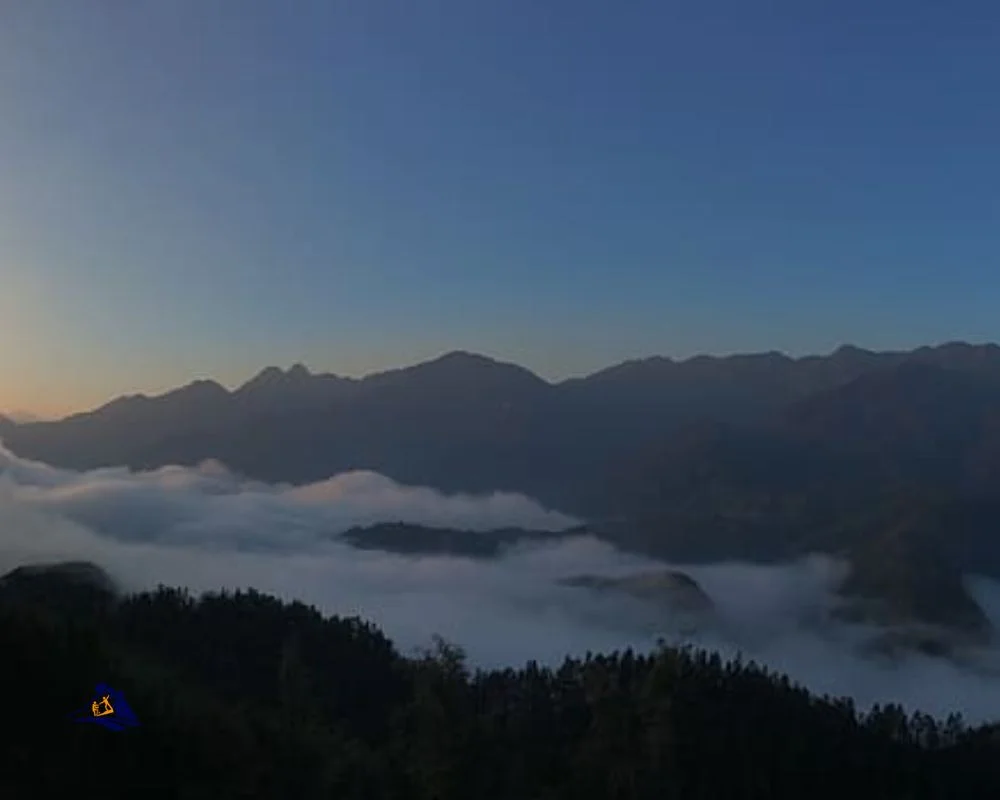
Assessing Your Physical Fitness for Fansipan’s Challenges
Before setting out on the Fansipan trekking challenge, it’s crucial to evaluate your physical fitness for climbing this formidable peak. Whether you are an experienced hiker or preparing for your first Fansipan hike, understanding the physical demands of the trek is essential. The journey to Fansipan’s summit will test your endurance, strength, and resilience, all the while rewarding you with breathtaking views and a sense of accomplishment.
Why Stamina and Strength Matter
Mount Fansipan will require significant physical exertion, particularly due to its high altitude, steep climbs, and the overall length of the hike. Stamina and strength are the two pillars of physical fitness that will support you throughout this journey. Ensuring your body is well-prepared to deal with these demands will enhance your hiking experience and reduce the risk of injury.
Training Tips for Aspiring Climbers
Preparation is the key to successfully completing the Fansipan trek. A well-structured training routine should focus on cardiovascular health, muscle strength, and, particularly, leg endurance. Here are some recommended activities that will help fortify your physique for the strenuous Fansipan trek:
- Engage in cardio exercises such as running, cycling, or long-distance swimming at least four times a week.
- Incorporate strength training routines targeting your core, legs, and back to support your body during the climb.
- Practice hiking on local trails with varying inclines to acclimatize your body to similar conditions.
- Don’t forget to include flexibility workouts such as yoga or stretching to improve balance and muscle responsiveness.
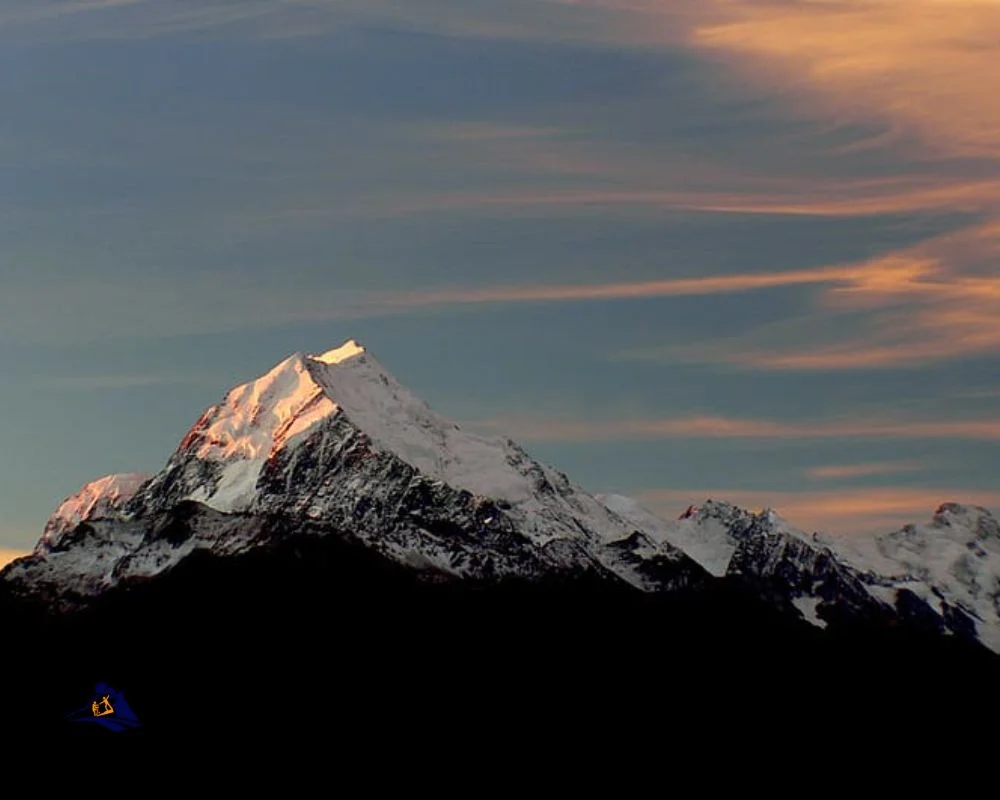
A comparative table breaking down various exercise routines and their benefits for a Fansipan trek:
| Exercise Type | Primary Benefit | Frequency |
|---|---|---|
| Cardiovascular Training | Increases stamina and lung capacity | 4-5 times a week |
| Strength Training | Builds muscle strength and endurance | 3 times a week |
| Flexibility Routines | Improves balance and reduces injury risk | Daily or post-exercise |
| Practice Hikes | Acclimates body to trail conditions | Weekly |
As we compile these training tips, it’s vital to adapt them to your individual fitness levels and needs. Listen to your body, seek guidance when necessary, and gradually increase the intensity of your preparation. With discipline and dedication, physical fitness for climbing Mount Fansipan can be within your reach, turning the Fansipan trekking challenge into an achievable dream.
Equipment Essentials for Fansipan’s Climb
Ascend the highest peak of Indochina with confidence by arming yourself with the apt climbing equipment for Fansipan. As we delve into the requirements, keep in mind the old adage: ‘better to have and not need, than to need and not have.’ From toe to top, having the right gear is not an optional luxury but a necessity for safety and comfort.
Choosing the Right Gear
Embarking on the Fansipan adventure, what to wear for the Fansipan trek is one query that cannot be taken lightly. Sturdy, weather-appropriate clothing and footwear are paramount. We advocate for lightweight, versatile gear that can handle any sudden shifts in weather without adding unnecessary weight to your backpack.
Remember, the right footwear does more than just take you places; it protects your path every step of the way.
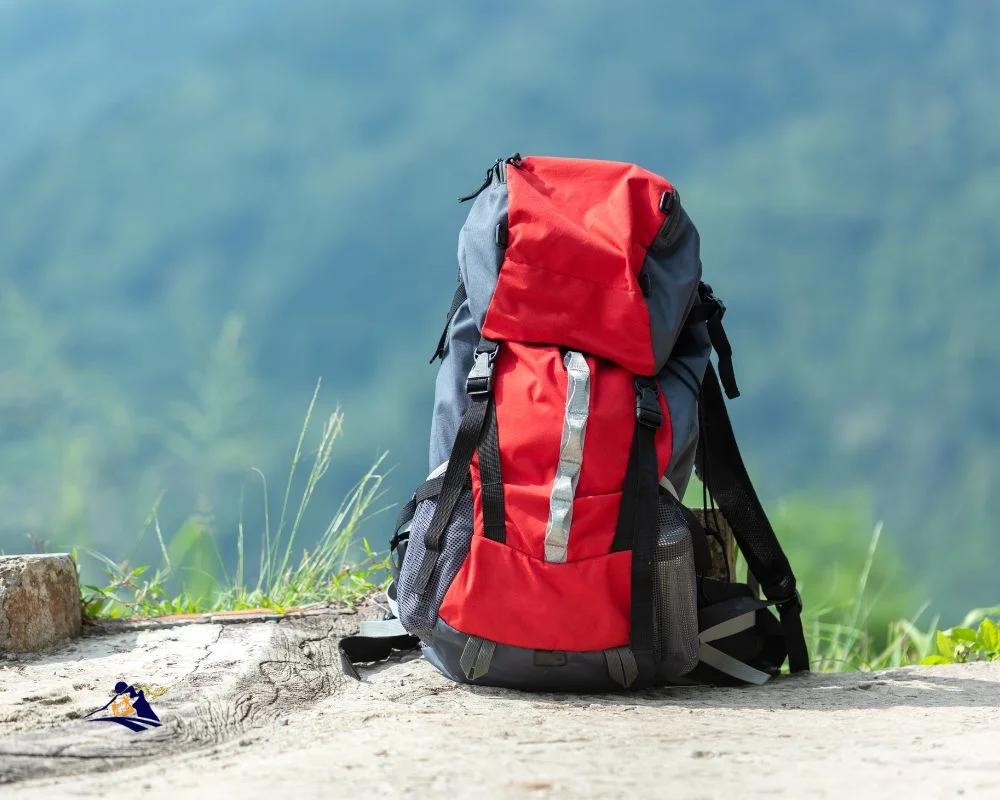
Each item on your equipment list must be carefully considered. Everything from your backpack to your water bottle must hold up to the rigors of the trek while contributing to the overall efficiency and effectiveness of your climb.
Preparing for Weather Variabilities
At high altitudes like Fansipan’s, weather can change in the blink of an eye, turning a sunny morning into an afternoon shrouded with mist. That’s why it’s crucial to pack gear that caters to all potential conditions. We recommend lightweight, absorbent base layers and insulating mid-layers that can be easily adjusted.
Now, let’s lay out the Fansipan mountain climbing tips in an easy-to-follow table format:
| Equipment Category | Recommendations | Function |
|---|---|---|
| Footwear | Waterproof Hiking Boots | Protects against harsh terrain and keeps feet dry. |
| Clothing | Layered Apparel with a Windproof Layer | Allows for temperature regulation and wind protection. |
| Backpack | 30-40L Backpack with Rain Cover | Ensures ample space for essentials and protection against rain. |
| Hydration | Water Bottles or Hydration System (Minimum 3L) | Maintains hydration throughout the trek. |
| Nutrition | Energy Bars and Trail Mix | Supplies necessary calories and nutrients for endurance. |
| Navigation | Map, Compass, or GPS Device | Helps maintain the correct trail and direction. |
In conclusion, gearing up for Fansipan extends beyond the material—it’s about preparing for a journey of body and spirit. Let’s carry only what we need, so we’re free to absorb all that we can on our ascent to the clouds.
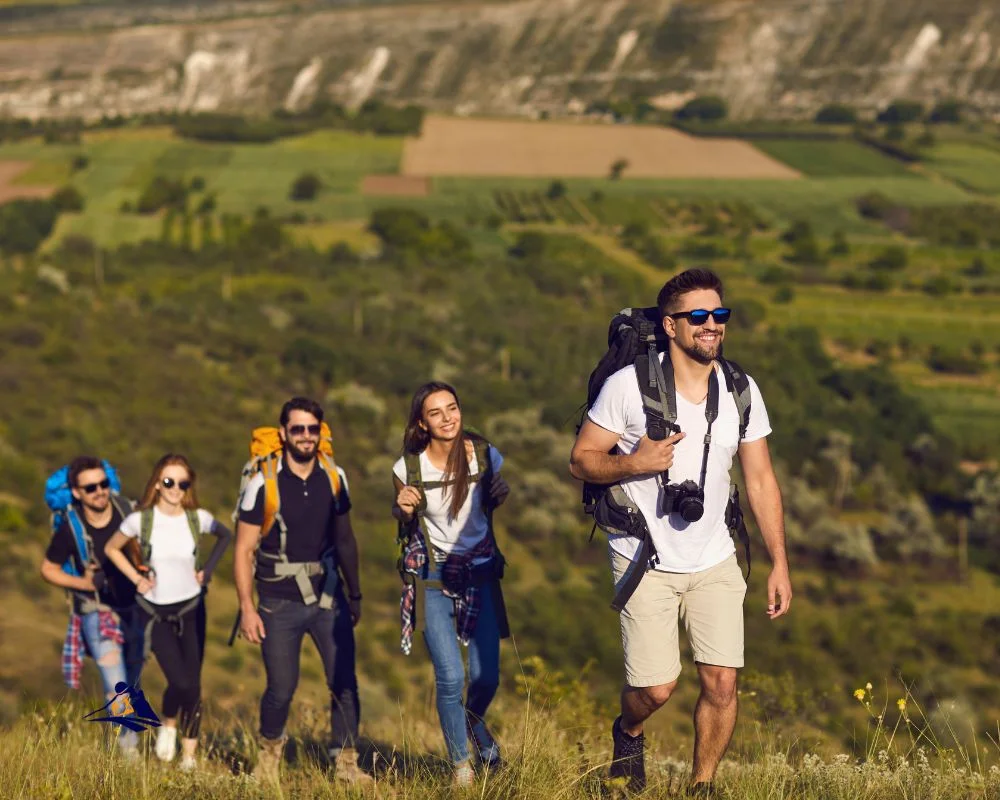
What Does It Take to Conquer Fansipan Peak?
For many, the prospect of conquering Fansipan peak electrifies the spirit of adventure. But the journey to the Roof of Indochina is one that demands respect, preparation, and strength. The Fansipan climb difficulty shouldn’t be underestimated, so we’re here with essential Fansipan mountain climbing tips to assist you in your quest for the summit.
- Understand the unique weather patterns and prepare accordingly.
- Assess your physical fitness level and adapt your training to ensure you’re adequately prepared for the ascent.
- Pack suitable gear and clothing that will protect you against the elements.
- Carefully plan your hydration and nutrition for sustained energy while climbing.
- Consider hiring a knowledgeable guide for insight and safety on the mountain trails.
“Mountains are not fair or unfair, they are just dangerous.” – Reinhold Messner
Would-be climbers should pay heed to the guidance of experts who have previously navigated this peak. The right preparation materially impacts your journey – physical training, familiarizing yourself with the locality, and the cognizance of Fansipan’s natural challenges are all pivotal to a successful climb.
| Preparation Aspect | Explanation | Importance |
|---|---|---|
| Weather Adaption | Understanding and preparing for the variability of Fansipan’s weather. | Crucial for comfort and safety. |
| Physical Fitness | Conditioning your body for the specific demands of high-altitude trekking. | Reduces the risk of altitude sickness and increases endurance. |
| Gear & Clothing | Choosing proper attire and equipment that can handle the mountain’s harsh conditions. | Essential for protection against the elements. |
| Hydration and Nutrition | Maintaining energy levels with adequate food and water supplies. | Key to maintaining stamina and avoiding dehydration. |
| Guided Support | Employing the expertise of a local guide. | Advisable for enhanced safety and local insights. |
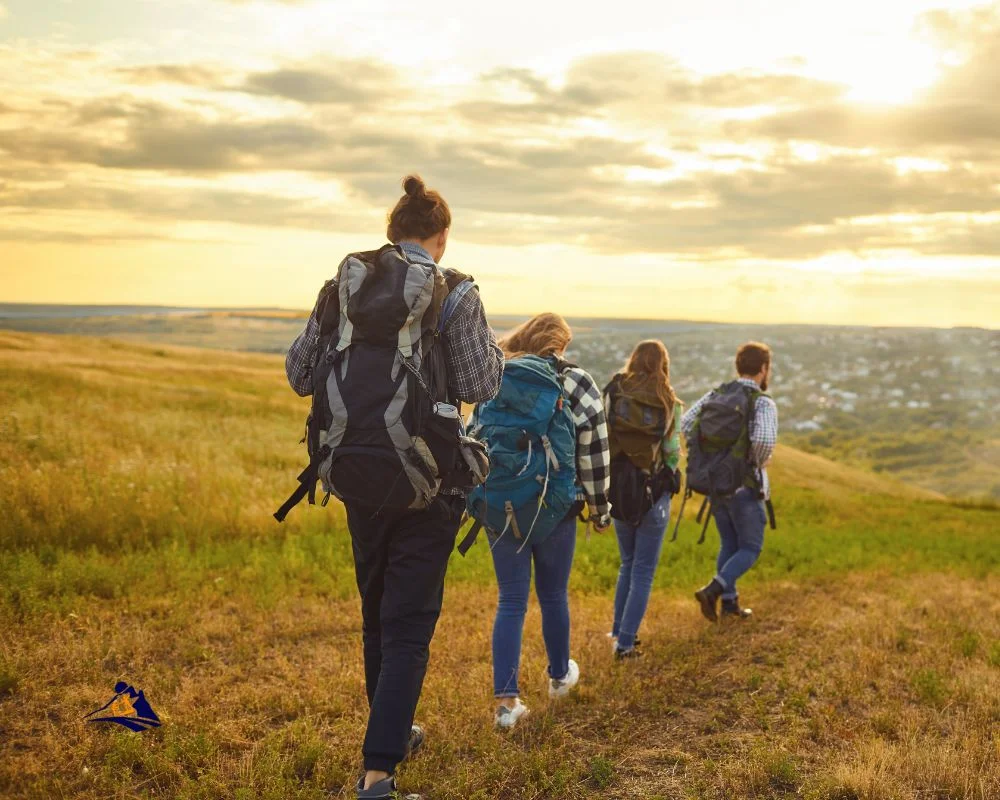
As we consider the journey ahead, we are reminded that the path to the top is not just physical, but mental. The right mindset, coupled with thorough planning and respect for nature’s might, sets the foundation for a triumphant ascent. May our tips light your way up this majestic peak, granting you the fortitude to join the ranks of those who have witnessed the world from Indochina’s magnificent summit.
A Step-by-Step Guide to Planning Your Fansipan Trek
Embarking on a journey to conquer the majestic Fansipan Mountain begins with meticulous preparation. We understand the importance of every detail, from securing Fansipan trekking permits to choosing the ideal ascent path. To ensure your Fansipan hiking experience is seamless, follow our curated guide, and be one step closer to witnessing the breathtaking views from the summit.
Securing Your Trekking Permits
Acquiring the necessary Fansipan trekking permits is a mandatory step in your planning Fansipan hike process. Due to its status as a national park and proximity to international borders, ensuring you have proper authorization is crucial. It’s advisable to arrange these permits ahead of time to avoid any setbacks on your adventure.
Mapping Your Ascent: Selecting the Best Trail
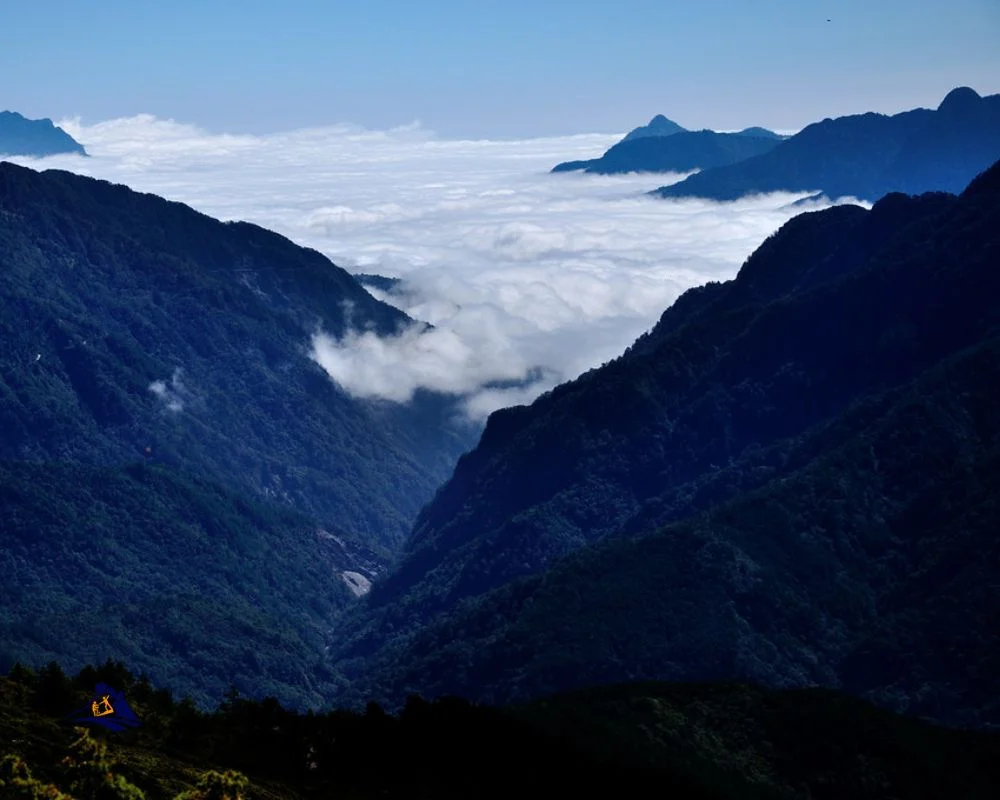
Selecting the trail that best suits your experience and stamina level is key to an enjoyable trek. Tram Ton Pass is highly recommended for its balance between challenge and manageability, making it a favorite among trekkers. However, for those seeking a more strenuous endeavor, routes from Sin Chai or Cat Cat village offer varying degrees of difficulty and immersive scenic beauty.
As your Fansipan trekking guide, we’re here to advise you every step of the way. With our help, planning your Fansipan hike will be an exciting prelude to an unforgettable adventure. Soon, you’ll be standing atop the Roof of Indochina, with a sense of triumph like no other.
The Best Time to Climb Fansipan Mountain
As we’ve been preparing for our Fansipan hike, we’ve learned that choosing the right time to embark on this adventure can make all the difference. To ensure the best possible experience, one must consider the Fansipan weather conditions and aim for the ideal time window. Climbing Fansipan has its optimal seasons, and we’re here to share these insights so you can plan your ascent to the Roof of Indochina with confidence.
The best time to climb Fansipan ranges across two primary periods in the year. Firstly, from October to November, the post-monsoon season brings less rainfall and skies clear enough to reveal stunning views. The second window, from February to April, ushers in the spring, with moderate temperatures and the land vivid with the color of blooming flowers.
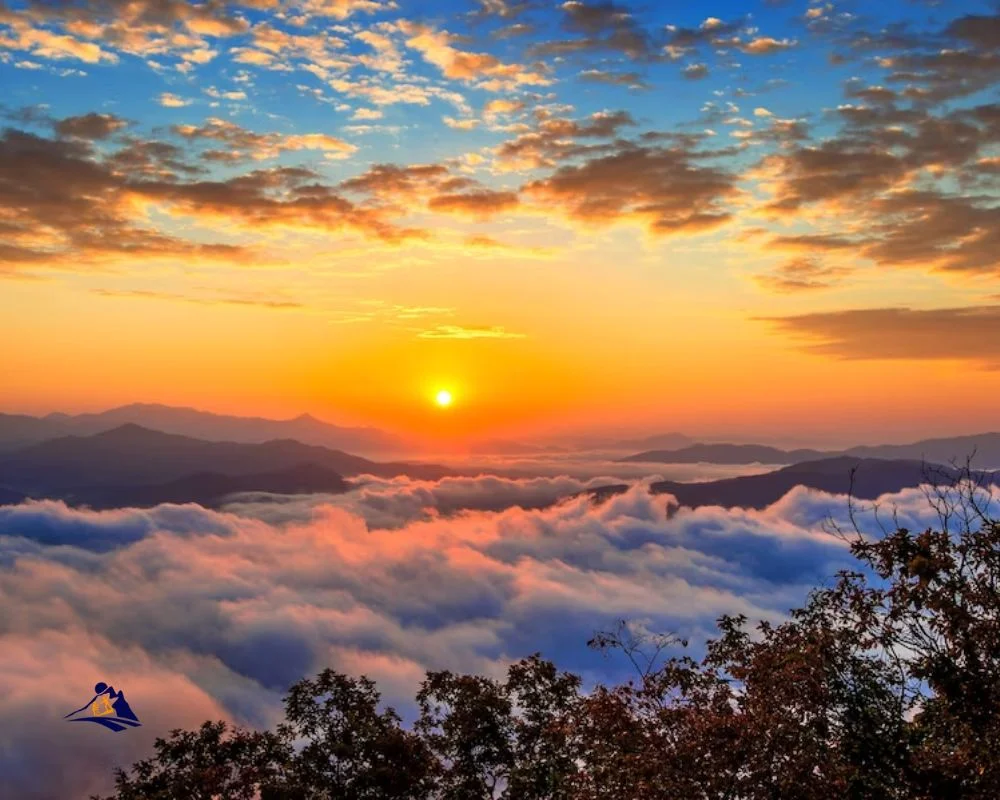
To provide a comprehensive overview, let’s examine the seasonal conditions in detail:
| Season | Months | Weather Conditions | Visibility | Flora |
|---|---|---|---|---|
| Fall | October – November | Cooler, Dry | High | End of Monsoon Greenery |
| Winter | December – January | Coldest, Potential Snow | Variable | Winter Dormancy |
| Spring | February – April | Mild, Less Rain | High | Blooming Flowers |
| Summer | May – September | Warm, Monsoon Showers | Low | Lush Vegetation |
Warm clothes and waterproof gear are advised no matter when you plan your journey, as mountain weather can be fickle. While we’re discussing the best time to climb Fansipan, remember that safety comes first. Staying updated with the latest weather forecasts is a part of responsible trekking, as is being well-prepared with the right gear and knowledge of the terrain.
By aligning your schedule with optimal Fansipan weather conditions and preparing adequately, your excursion to Vietnam’s highest peak can be a story of success and fulfillment.
Navigating the Route: Fansipan Trekking Challenge
Taking on the Fansipan trekking challenge is an exhilarating journey that unfolds with each step towards the summit. As we traverse the hiking paths, it’s not only our endurance that’s tested but also our ability to strategically navigate the undulating terrain. Fansipan’s climb difficulty stems from its deceptive ascents that lead to sudden descents, challenging even the most experienced trekkers.
From Base to Summit: Breaking Down the Ascent
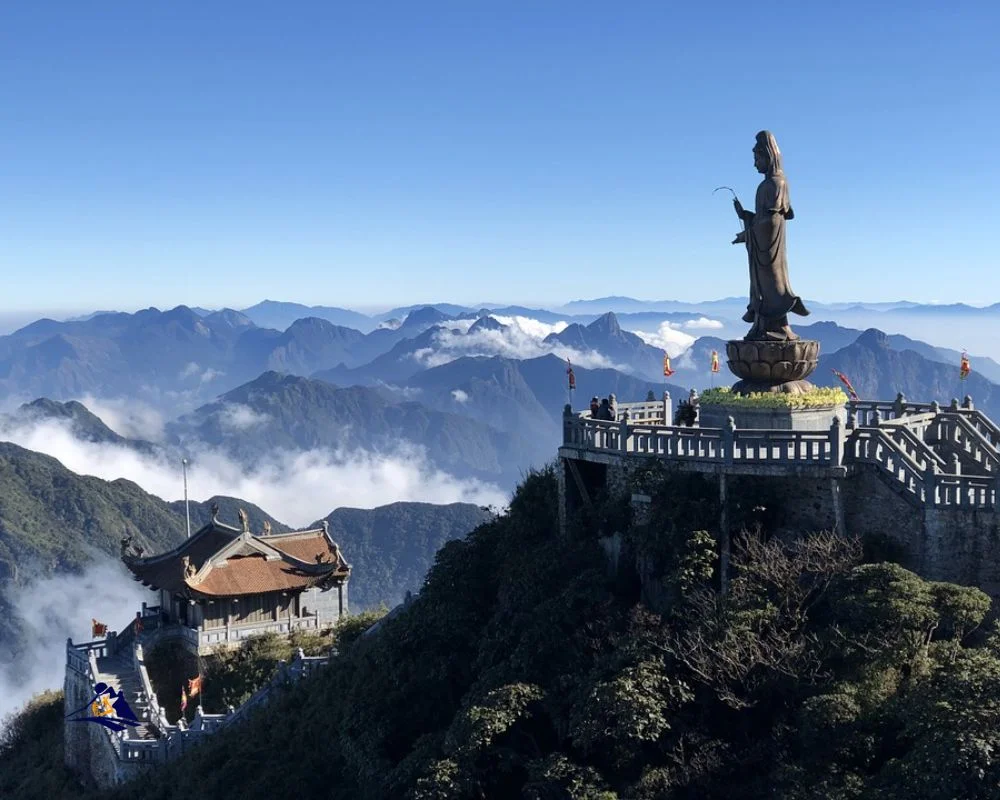
To fully appreciate the climb’s intricacy, let’s break down the ascent from base to summit. Starting our quest at sea level, where every breath is a gulp of rich oxygen, we ascend into thinner air with each meter gained. The climb takes us through diverse ecosystems, from lush bamboo forests to alpine terrain, reminding us why this quest is the ultimate bucket-list challenge for avid trekkers. Navigating the Fansipan route requires vigilance, as the path weaves through the Hoang Lien Son mountain range’s captivating beauty.
Rest Stops and Campsites along the Trail
- Base camp village: The starting point of adventure and preparation
- Rest stop at 2,200m: A welcome respite to refuel and adjust to altitude
- Rest stop at 2,800m: Ideal for overnight camping or a short break before the final push
- Summit rest: The peak itself, where the view is the ultimate reward
In preparation for this ascent, our stops at 2,200m and 2,800m are not just about catching our breath but also about tuning into the mountain’s rhythm. As we push towards the summit, the climb becomes a balancing act between our determination to reach the peak and the mountain’s silent reminders to tread thoughtfully. With each rest stop marking our journey’s milestones, we not only navigate a physical trail but embark on an inner expedition to discover our fortitude amidst Fansipan’s magnificence.
Sapa 1 Day Tours

- 1 day experience
- Moderate to challenging
- Cultural immersion & active adventure
- Rice fields, valleys & villages
- Private tours
- Vegan-friendly
Sapa 2 Day Tours

- 2 days 1 night experience
- Moderate to challenging
- Cultural immersion & active adventure
- Mountains, valleys, rice fields and villages
- Private tours
- Vegan-friendly
Sapa 3 Day Tours

- 3 days 2 night experience
- Moderate to challenging
- Cultural immersion & active adventure
- Mountains, valley, rice fields & villages
- Private tours
- Vegan-friendly
Sapa 4 Day Tours

- 4 days 3 night experience
- Moderate to challenging
- Cultural immersion & active adventure
- Mountains, valleys, rice fields & villages
- Private tours – Less Touristic
- Vegan-friendly
Embarking on the Ascent: Fansipan Summit Difficulty
As we prepare for the arduous journey ahead, the Fansipan summit difficulty becomes a tangible challenge, pushing even seasoned trekkers to their limits. We’re about to undertake a trek defined by its challenging slopes of Fansipan — slopes that have tested the resolve of many adventurers embarking on Fansipan ascent.
Steep Slopes and High Altitudes: Testing Your Limits
The mountain doesn’t yield its summit easily. Each bend along the ever-ascending trail brings forth new difficulties—sudden inclines and sharp descents. For those of us who have scaled other peaks, the repeated trials of gravity here feel both familiar and uniquely daunting. With every meter gained, the air thins, reminding us that we are entering the realm where the earth touches the sky.
The Final Push: What to Expect at the Peak
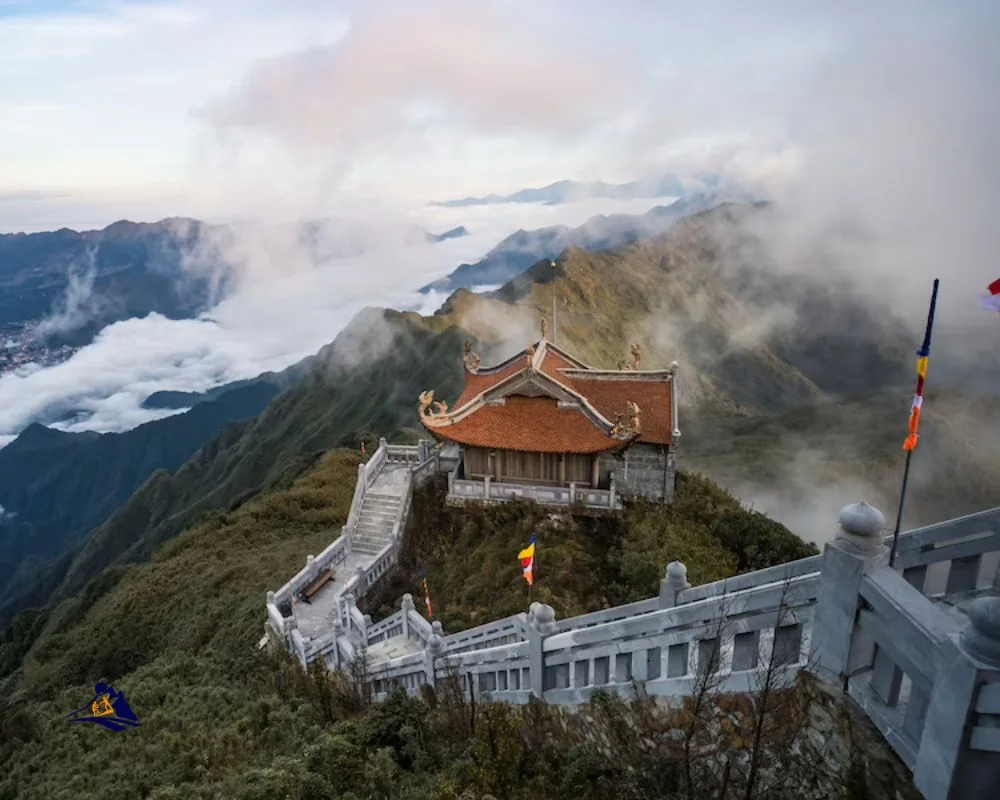
The final chapters of our ascent are written on the harshest slopes of Fansipan, where the terrain demands respect—and the climber’s spirit shines brightest. What awaits at the peak? A picturesque landscape often shrouded in snow in the winter months, boasting views that make every bit of the struggle worthwhile. Victory here is a silent agreement between the mountain and the climber, sealed with panoramic vistas that etch themselves into memory.
Staying Safe on Your Fansipan Adventure
Ensuring safety on Fansipan climb is paramount to a successful trekking experience. We believe a well-prepared hiker is a safe climber, and that’s why we’ve compiled essential Fansipan hike preparation tips to guide you on your journey.
From changeable weather patterns to challenging terrains, Fansipan doesn’t shy away from testing its trekkers. To navigate these trials effectively, it’s crucial to follow tested Fansipan mountain climbing tips. Here’s what we recommend for a safe ascent:
- Acquaint yourself thoroughly with the terrain by researching and understanding the typical conditions you may encounter during your climb.
- Stay vigilant and adhere to well-marked paths, as weather-induced visibility issues can quickly lead to disorientation.
- Equip yourself with the appropriate gear, including sturdy trekking boots, weather-appropriate clothing, and a reliable navigation system.
- Carry emergency supplies such as a first-aid kit, a whistle, a flashlight, and extra food and water.
- Regularly check weather forecasts and prepare for sudden changes in conditions.
- If new to mountain climbing or alone, consider hiring a local guide who knows the mountain well.
- Always inform someone of your climbing plans and projected return time.

While the ascent may be demanding, the beauty and sense of achievement at the summit are exhilarating rewards, fully realized when we prioritize safety and preparation on our Fansipan adventure.
Alternative Options: The Cable Car Experience
As avid adventurers, we’re always seeking different ways to experience the majestic heights of Fansipan, and we’ve discovered that the Fansipan cable car offers a unique perspective that’s both breathtaking and accessible. Imagine reaching the peak of Indochina without the arduous hike, a tempting prospect for many, especially those pressed for time or who prefer a less strenuous journey to the top.
Combining Trek and Cable Car for the Ultimate Experience
For us who revel in the exertion of the climb yet look forward to a serene descent, combining trek and cable car is the perfect blend. Ascending the peak on foot gives us the exhilaration and satisfaction of a trekker’s triumph, while the cable car descent provides a well-deserved break and a moment to absorb the panoramic vistas comfortably. It’s the ultimate way to fully appreciate the magnificence of Fansipan, saving our strength to savor the summit’s spectacular allure without the fatigue of the return hike.
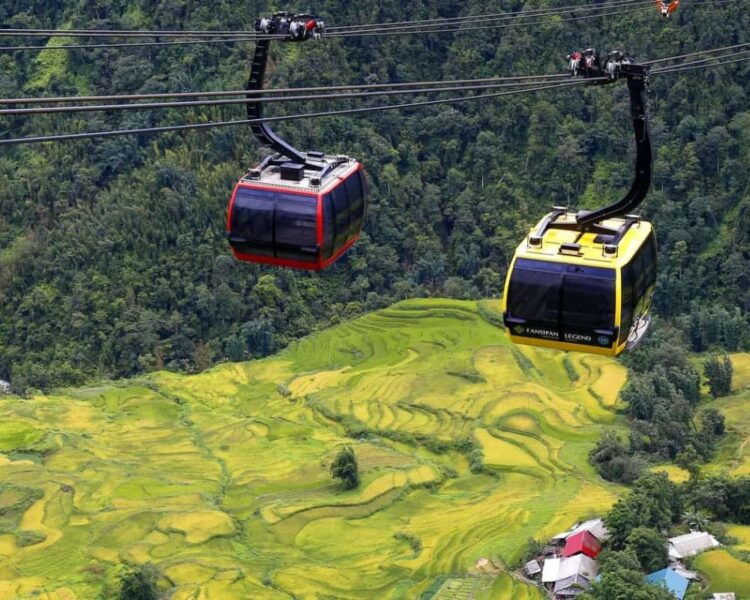
In the table below, we’ve laid out the advantages of both trekking to the summit and taking the cable car. It’s a straightforward guide for you to decide which option aligns with your travel style, time constraints, and physical capabilities. Enjoy tailoring your journey to the Roof of Indochina to your personal preferences.
| Experience | Benefits | Duration | Physical Effort |
|---|---|---|---|
| Fansipan Trek | Physical challenge, closer interaction with nature, sense of achievement | 6-8 hours to ascend | High |
| Fansipan Cable Car | Fast access, panoramic views, comfortable journey | 15 minutes one-way | Low |
| Trek and Cable Car Combo | Best of both worlds, rewarding trek and a relaxing return | Variable depending on trek speed | Moderate (One-way) |
Enjoying the Summit Without the Hike
Attention to those among us who prefer to skip the hike altogether—the Fansipan cable car is ready to whisk you to the top with ease. Operations run from early morning to evening, ensuring that even those with a tight schedule can enjoy the marvels of Fansipan’s peak. As your trusty Fansipan trekking guide, we can assure you that the cable car journey itself is an attraction to behold, with stunning aerial views that are simply unforgettable.
Whether you’re summiting on foot or floating up by cable car, one thing is indisputable—the majesty of Fansipan is a sight to behold. We encourage you to choose the path that best suits you and prepare for an encounter with nature that promises to elevate more than just your altitude. At the end of the day, it’s the memories we take home that define our adventures.
Sapa 1 Day Tours

- 1 day experience
- Moderate to challenging
- Cultural immersion & active adventure
- Rice fields, valleys & villages
- Private tours
- Vegan-friendly
Sapa 2 Day Tours

- 2 days 1 night experience
- Moderate to challenging
- Cultural immersion & active adventure
- Mountains, valleys, rice fields and villages
- Private tours
- Vegan-friendly
Sapa 3 Day Tours

- 3 days 2 night experience
- Moderate to challenging
- Cultural immersion & active adventure
- Mountains, valley, rice fields & villages
- Private tours
- Vegan-friendly
Sapa 4 Day Tours

- 4 days 3 night experience
- Moderate to challenging
- Cultural immersion & active adventure
- Mountains, valleys, rice fields & villages
- Private tours – Less Touristic
- Vegan-friendly
Preserving Nature: How to Be a Responsible Trekker
When we set out on an adventure to conquer the majestic Fansipan, not only do we carry our supplies and determination, but we also bear the responsibility to tread lightly on this magnificent landscape. Responsible trekking on Fansipan isn’t just a practice; it’s a commitment to preserving the pristine nature surrounding us. As we journey through the varied terrain, we remember that our presence should harmonize with the ecology of the area, ensuring that the paths we navigate remain as untouched and as beautiful for those who follow.
As your trusted Fansipan trekking guide, we want to provide you with actionable ways to preserve nature on your Fansipan hike. Here’s how you can embody the spirit of conservation with every step:
- Pack out all your trash. If you pack it in, you pack it out. No exceptions.
- Minimize campfire impacts by using a portable stove for cooking and enjoying natural warmth from insulating layers of clothing.
- Respect the local flora and fauna. This means no picking plants or feeding animals.
- Stay on designated trails to combat erosion and protect plant life.
- Use biodegradable products wherever possible and avoid contaminating water sources with soaps or waste.

Let’s put our attention to a crucial table that depicts the ‘Dos and Don’ts’ for a conscientious trekker:
| Do | Don’t |
|---|---|
| Carry reusable water containers | Leave behind plastic bottles or wrappers |
| Keep to designated trails | Forge new paths or shortcuts |
| Observe wildlife from a distance | Disturb or approach wildlife |
| Respect cultural heritage sites | Deface or remove cultural artifacts |
| Advocate for preservation | Ignore conservation principles |
By adopting these guidelines, we ensure that the wonders of Fansipan are left unscathed for others to enjoy. Our joint efforts in preserving nature on Fansipan hike mirror our respect for this remarkable peak and its surrounding community. As we ascend towards the clouds, let our legacy be one of guardianship, leaving only footprints and taking only memories.
Conclusion
As we reflect on the ascent to Fansipan’s awe-inspiring summit, we consider the journey just as valuable as reaching the peak itself. Our comprehensive guide has navigated you through the essential facets of trekking this formidable mountain, showcasing that with the right blend of physical readiness, thorough preparation, and a profound reverence for the great outdoors, Fansipan climbing success is within your grasp. Are you all set to embark on this adventure and join the ranks of trekkers who’ve witnessed the sublime beauty atop the Roof of Indochina?
Achieving the Fansipan Dream: Are You Ready?
To truly be ready for Fansipan trek is to align your spirit with the mountain’s rhythm. It requires a blend of robust stamina, a mind attuned to navigating its undulating terrains, and a heart committed to enduring its atmospheric whims. As you lace up your boots and adjust your pack, take a moment to acknowledge the challenge ahead and bolster your resolve. Remember, it’s not just about conquering a mountain but also about mastering the intricacies of your determination.
Sharing Our Fansipan Experience and Tips
We’re eager to pass on the torch of knowledge with actionable Fansipan mountain climbing tips that have illuminated our path. Sharing our experiences fuels the spirit of camaraderie that binds the trekking community. Let’s keep the dialogue open and thriving, allowing us all to grow and learn from each tale of triumph. Together, we can ensure that each climber—new or veteran—finds their footing and the fulfillment of a dream on the high, mist-kissed trails of Fansipan.
Sapa 1 Day Tours

- 1 day experience
- Moderate to challenging
- Cultural immersion & active adventure
- Rice fields, valleys & villages
- Private tours
- Vegan-friendly
Sapa 2 Day Tours

- 2 days 1 night experience
- Moderate to challenging
- Cultural immersion & active adventure
- Mountains, valleys, rice fields and villages
- Private tours
- Vegan-friendly
Sapa 3 Day Tours

- 3 days 2 night experience
- Moderate to challenging
- Cultural immersion & active adventure
- Mountains, valley, rice fields & villages
- Private tours
- Vegan-friendly
Sapa 4 Day Tours

- 4 days 3 night experience
- Moderate to challenging
- Cultural immersion & active adventure
- Mountains, valleys, rice fields & villages
- Private tours – Less Touristic
- Vegan-friendly
